Creating a harmonious and serene bedroom space is essential for restful sleep and personal well-being. One of the most powerful yet often overlooked tools in achieving this balance is the strategic use of indoor plants. In Feng Shui, the ancient Chinese art of arranging environments to promote positive energy (Qi), the placement and type of plants in your bedroom can greatly influence your emotional, physical, and spiritual health.
This article explores the core principles of Feng Shui as they relate to bedroom plant placement, reveals the best types of plants to choose, and offers detailed tips on where and how to position them for optimal flow of positive energy.
Understanding Feng Shui and Its Role in the Bedroom
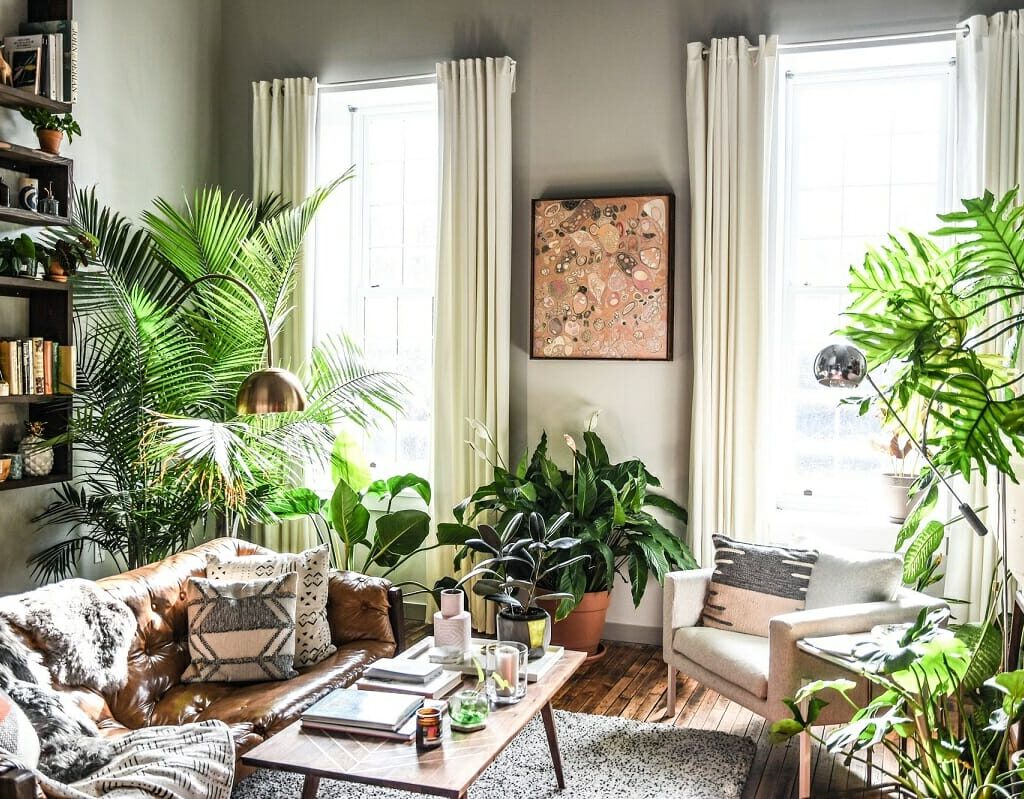
Feng Shui is based on the idea that our surroundings directly affect our energy levels, health, and happiness. Each room in a home serves a different energetic purpose, and the bedroom is especially sacred—it’s a place of rest, romance, and renewal.
According to Feng Shui principles, your bedroom should:
- Encourage peace and relaxation
- Support restful sleep
- Promote love and healthy relationships
- Foster healing and self-care
Plants are considered living Chi (energy) and can be powerful tools in enhancing or disrupting this balance, depending on how they are selected and placed.
The Role of Plants in Feng Shui
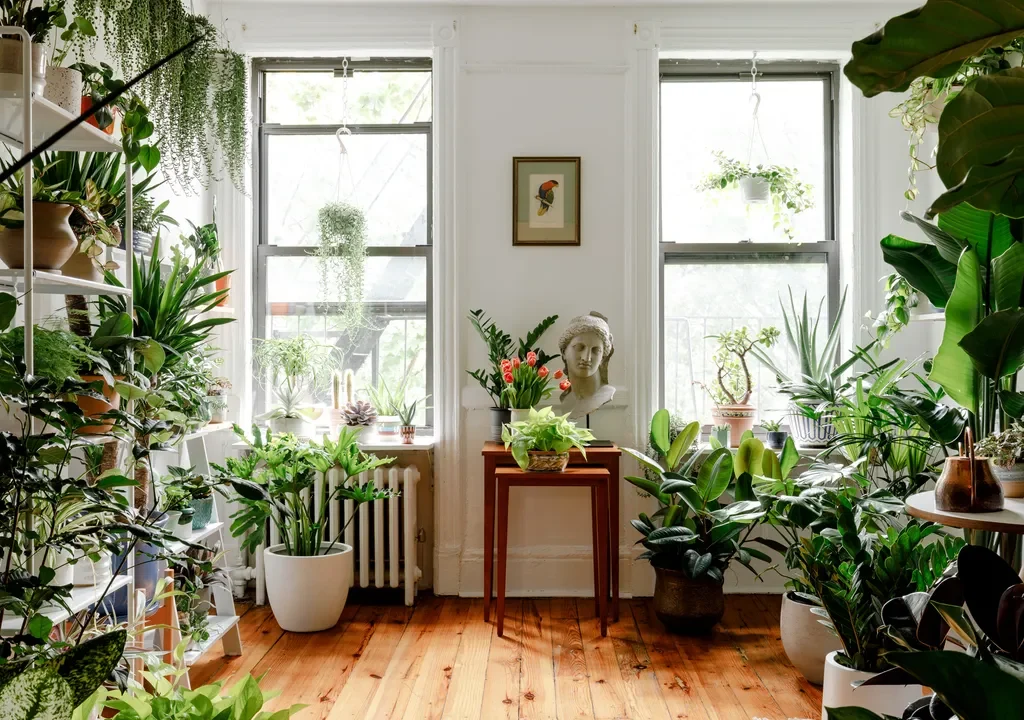
Plants represent the Wood element in Feng Shui, which brings in vitality, growth, and new beginnings. However, not all plants or placements are auspicious, especially in the bedroom. The key is to balance the energy and avoid overstimulation.
While plants can promote air purification and add aesthetic beauty, excessive greenery or wrongly placed plants can lead to restlessness and even conflict. This is particularly relevant in a space meant for calm, such as the bedroom.
Best Types of Feng Shui Bedroom Plants
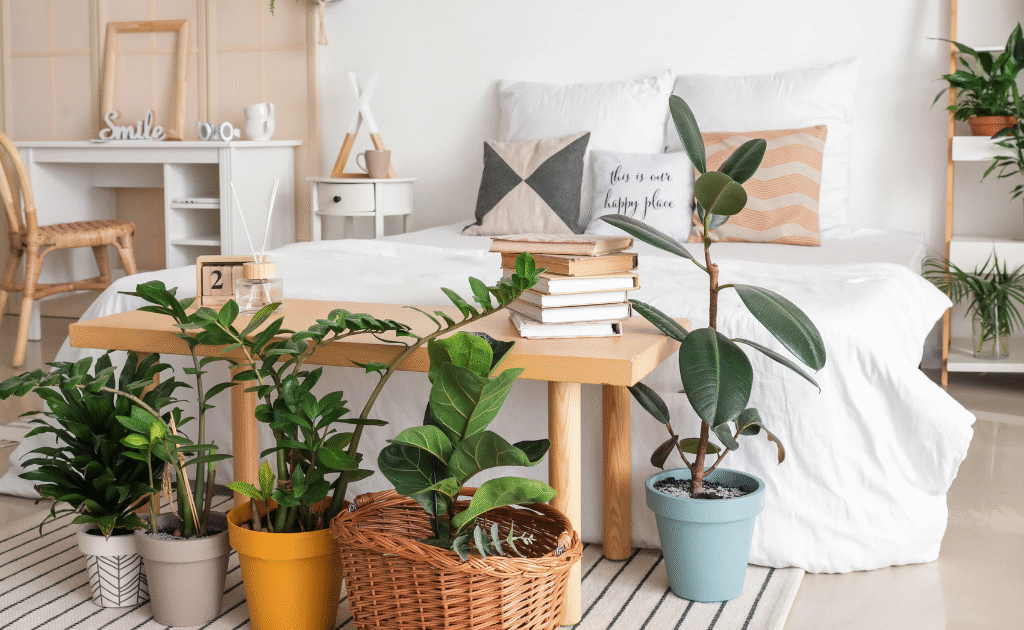
Choosing the right type of plant is crucial. The best Feng Shui bedroom plants are gentle, slow-growing, and air-purifying. Here are some top picks:
1. Snake Plant (Sansevieria trifasciata)
Also known as the “mother-in-law’s tongue,” this hardy plant is an excellent air purifier and emits oxygen at night, promoting restful sleep. Its upright structure brings a sense of stability.
2. Peace Lily (Spathiphyllum)
With its soft white blooms and air-cleansing abilities, the Peace Lily symbolizes tranquility and feminine energy—perfect for creating a serene bedroom space.
3. Areca Palm
This plant brings a tropical, uplifting vibe. Its fan-like fronds help circulate positive energy and soften hard corners in a room.
4. Aloe Vera
A healing plant that absorbs harmful toxins and releases oxygen. Aloe Vera is low-maintenance and spiritually associated with protection.
5. Lavender
Although often used in essential oils, the plant itself emits a calming aroma and supports emotional well-being.
Where to Place Plants in the Bedroom According to Feng Shui
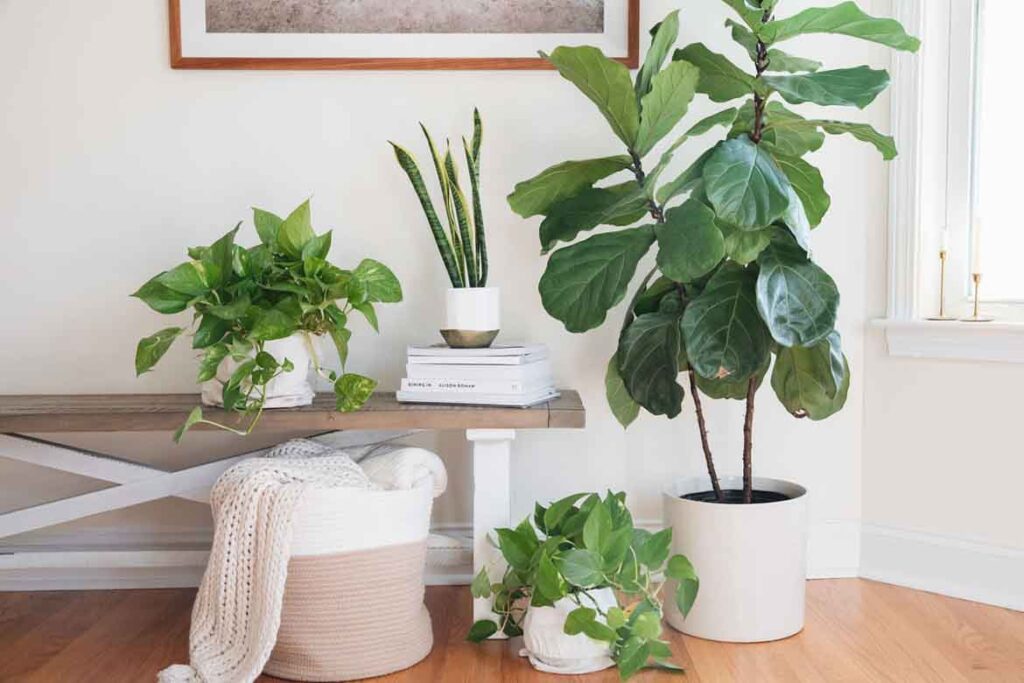
The placement of plants can either enhance or disrupt the Chi in your bedroom. Follow these location-specific tips:
1. Avoid the Head of the Bed
Plants should not be placed directly above or behind your head while sleeping. The energetic activity of the plant can disturb sleep or cause subconscious stress.
2. Place Plants in the Corners
The best areas to position plants in Feng Shui are the corners—especially the southeast corner for abundance and the east for health and family harmony.
3. Use the Bagua Map
Feng Shui uses a Bagua map to identify energy zones. For bedroom placement:
- Wealth (Southeast): Areca palm or jade plant.
- Health (East): Snake plant or bamboo.
- Love/Relationships (Southwest): Peace Lily or paired plants to symbolize harmony.
4. Limit the Number
Don’t clutter your bedroom with too many plants. Stick to 1–3 small to medium-sized plants. This maintains energetic balance and avoids excessive Yang (active) energy.
Plants to Avoid in the Bedroom
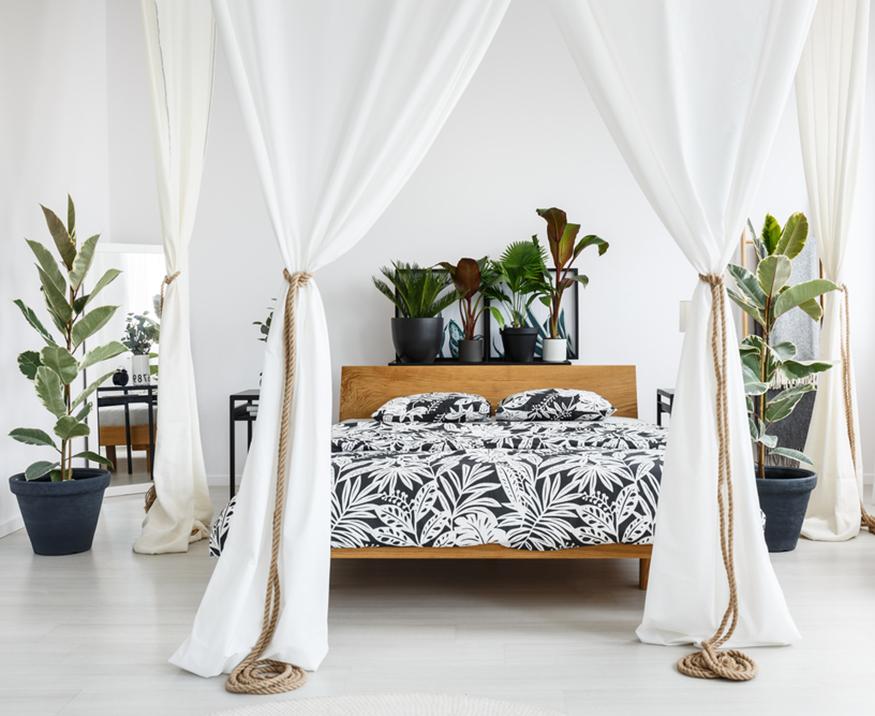
Feng Shui cautions against certain plants in bedrooms due to their energy, size, or symbolic meaning:
1. Cactus and Spiky Plants
Plants with sharp, pointed leaves like cacti produce Sha Chi (cutting energy). These are considered too aggressive and can disturb peace and relationships.
2. Bonsai Trees
Although beautiful, Bonsai are symbolic of stunted growth and limitation—ideas that are not supportive in a space of renewal.
3. Dried or Dying Plants
Dead or wilting plants represent decaying energy and can stagnate Chi. Always remove sick or dying plants from your bedroom promptly.
Enhancing Feng Shui with Plant Accessories
Your plant containers, materials, and accessories also play a role in energy flow:
1. Choose Natural Pots
Clay, terracotta, or wooden pots align better with Earth and Wood elements, offering grounding energy.
2. Avoid Plastic or Sharp Colors
Bright red or black plastic pots can disrupt the calm vibe of the bedroom. Stick to neutral, pastel, or earthy tones.
3. Double Up for Love
If you’re hoping to strengthen romantic relationships, place two of the same plant in the southwest corner of your bedroom. This symbolizes partnership and balanced energy.
Maintenance and Mindful Care
How you care for your plants is equally important in Feng Shui. Neglected plants signify ignored energy and can attract stagnation.
Tips for Proper Care:
- Water consistently but avoid overwatering.
- Dust the leaves regularly to keep energy flowing freely.
- Prune dead leaves or flowers.
- Speak positively to your plants. Energy responds to intention.
Your plants are living participants in your environment—treat them with respect and gratitude.
Balancing the Five Elements with Plants
Feng Shui revolves around the interaction of five elements: Wood, Fire, Earth, Metal, and Water. Plants naturally bring in the Wood element, but you can enhance harmony by adding elements like:
- Water: Incorporate a small tabletop fountain near the plant.
- Earth: Use ceramic pots or crystals.
- Metal: Add metal planters or small decorative accents.
- Fire: Soft lighting or red/pink flowering plants like Anthurium.
Conclusion: Bringing Harmony to Your Sleep Sanctuary
Incorporating plants into your bedroom can be a transformative Feng Shui practice—but it requires thoughtful intention. Choosing the right plants, placing them in the right spots, and maintaining their health ensures a steady flow of nourishing energy.
Whether you’re seeking better sleep, deeper love, or a stronger sense of well-being, the strategic use of plants can help turn your bedroom into a peaceful oasis. Embrace the power of nature and let your bedroom breathe with calming, positive Chi.

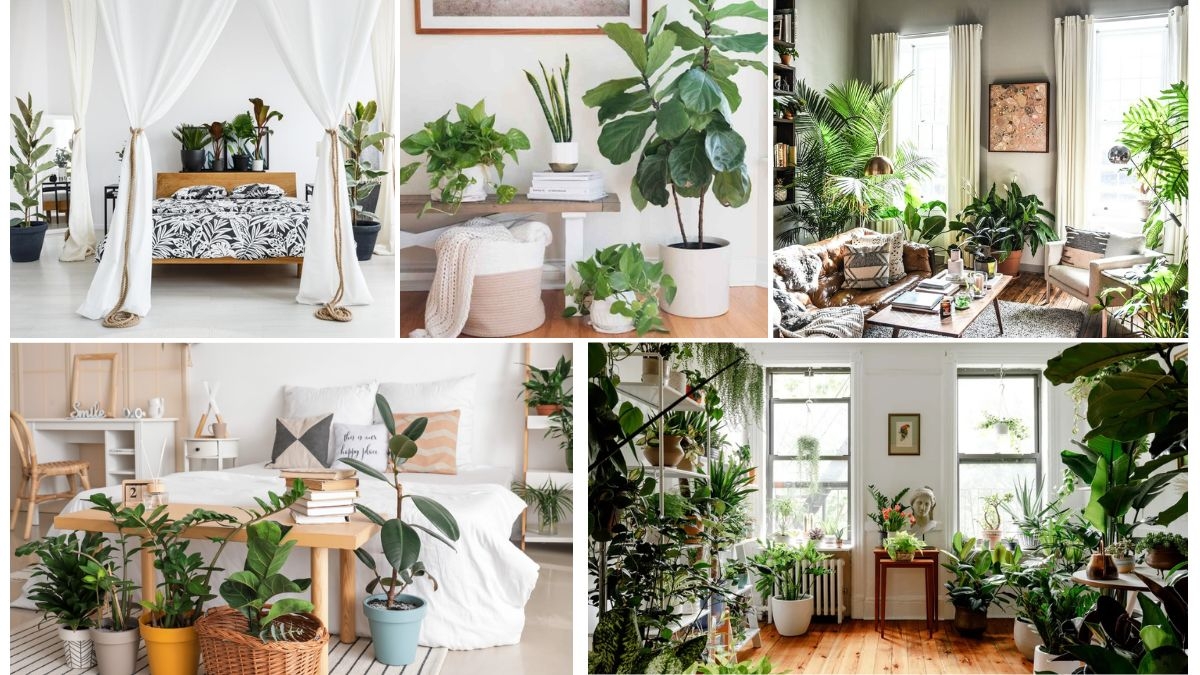





Leave A Comment